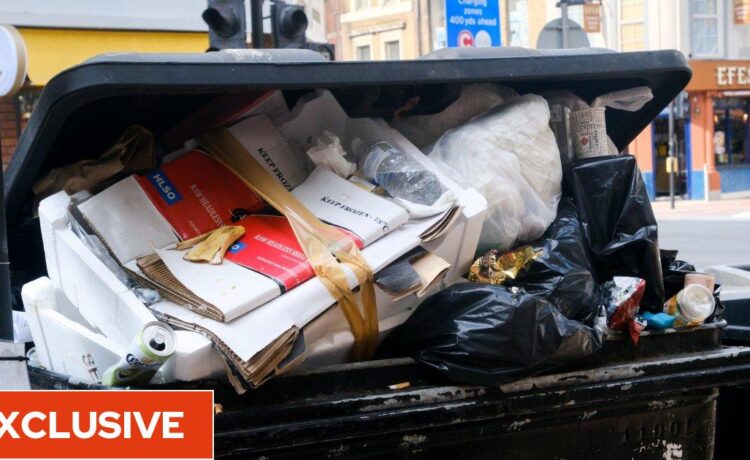A council with debts of £1.8bn could be forced to make further cuts to public services as one of its property investments looks set to lose the authority millions in a fresh financial blow, i can reveal.
Warrington Borough Council invested £10m in a retail, leisure and office property in Birmingham but the company behind the development has defaulted on a major loan and looks set to sell the asset to pay off a £108.5m debt.
The council’s financial health is a concern of the Government but the local authority has denied it is edging closer to bankruptcy.
It comes as councils throughout England continue to grapple with billions of pounds of debts, with several declaring themselves bankrupt in recent months and others at risk of going bust.
The sale of the Mailbox development in Birmingham, which houses a cinema, restaurants, bars, shops and offices, is estimated to fetch around £120m, but around 90 per cent of the proceeds will go to German financial powerhouse Deutsche Bank in order to pay back its lending on the scheme.
After the lending is paid back investors will be paid out of the remaining cash, according to their shareholdings in the project.
Warrington council owns just under 12 per cent of the building, meaning it would net around £1.4m on its original investment of £10m. The loss of around £8.6m could have a further impact on Warrington’s services for local people.
The Labour-run council has already announced £13.9m of cuts this year. Further cuts could affect key services such as social care and bin collections, while residents could also face a sharp rise in council tax bills.
In July local government minister Lee Rowley wrote to the authority stating that the findings of a review of its finances were “very serious.” He said that he was “concerned” that the council did not “fully appreciate” the level of risk it was exposed to.
Mr Rowley added that such levels of debt presented “significant risk to the council and public finances” and the review had highlighted that the authority’s debt-funded investments were “large, uniquely complex and carry significant inherent risk”.
The local authority has also come under pressure from opposition councillors over its investments, which include the ownership of supermarkets in Greater Manchester, solar farms in York, Hull and Cirencester, a BT development being built in Salford and a third share of Redwood Bank.
An energy firm part-owned by the council collapsed in 2022.
A spokesman for the council told i: “Any loss on investments can be met from the council’s strategic investment risk reserve.
“We have prudently put aside some of our previous investment returns to reduce the risk into a reserve. We are also forecasting to make £23m on our commercial portfolio in 2023/24 so any loss could potentially be offset by this.”
The council also denied it is considering a Section 114 notice, which effectively declares a council bankrupt.
The latest council to issue a Section 114 is Nottingham, which has forecast a budget deficit of £56.9m which, after using reserves of £9.4m and other corrective actions, has been reduced to a forecast deficit of £23.4m.
Since 2017, eight councils have issued Section 114 notices, including two separate notices from Northamptonshire and three from Croydon. Other councils to have issued Section 114 notices include Slough, Northumberland and Thurrock. In June Woking issued a Section 114, followed by Birmingham in September.
This week the Local Government Association (LGA) reported the findings of a survey of English councils that found almost one in five authorities admitted they were at risk of effectively going bankrupt.
The report from the LGA added that councils in England face a £4bn funding gap over the next two years just to keep services standing still.
It is expected that most councils will raise council tax bills by the maximum permissible without a local referendum of 4.99 per cent next April, meaning the average household will face an additional annual payment of around £120.
The spokesman for Warrington added: “The property [Mailbox] forms part of our diversified investment portfolio.
“During 2022/23, £200bn was wiped from the value of UK commercial property. Despite this record national fall, our property portfolio only decreased in value by 0.03 per cent, based on its purchase price per the council’s 2023/23 statement of accounts.
“Many of our property investments are for reasons other than making a return to the council, and enable us to meet local priorities for creating and protecting jobs, growing our economy and securing much needed affordable housing in our town.
“The Investment in Mailbox is also Treasury Management Investment. Like the majority of local authorities, the council has invested in property funds over recent years.”
The spokesman added that the council, like all local authorities, is protected by an FRS9 Statutory Override, which requires authorities to remove the impacts of the fair value movements of pooled investment funds from their budgets and record them in an unusable reserve.



